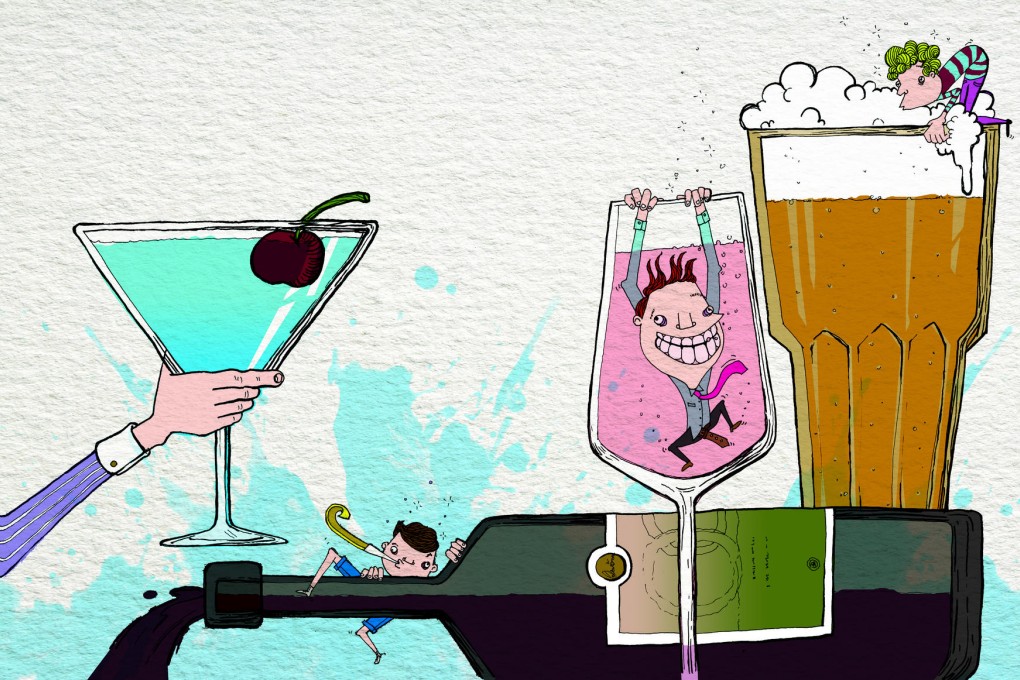Booze clues: why do we drink the way we do?
Whether we're celebrating, commiserating, relaxing or regrouping, our reaction to alcohol is dictated by expectations as well as choice of tipple. Kat Austen steps up to the bar

''What noise does Tintin make?"
"Pop!" answers my excitable three-year-old nephew, as my father - who prefers "Tintin" to "grandad" - squeezes the cork from a champagne bottle. It has become a tradition in my family, cracking open a bottle of champagne on Christmas Day - yours too, perhaps. It is the drink of celebration, after all. Sure enough, before long our banter is as bubbly as the contents of our glasses.
What if we had drunk neat gin instead? Chances are we would have become fed up or feisty rather than festive. What about beer? Sleepy or rowdy. Cider? Don't even ask. It is common knowledge that alcohol's effects depend not just on how much we drink, but what we drink, too. Is there any science behind this notion, though? Time we distilled some facts.
The scientific literature on the subject is surprisingly sparse. A review in 1996 of the existing research concluded that, for the same dose of alcohol, brandy impairs us more than beer, and makes us more aggressive and emotional - although beer drinkers tend to have more long-term alcohol-related problems and are more likely to drink and drive. An earlier study, in 1975, gave 40 male students bourbon or vodka and then "provoked" them with electric shocks. While all the students administered stronger shocks in return the more they had drunk, the vodka drinkers were much more aggressive.
Why might that be? One possible answer lies in a drink's "congeners". These molecules originate either in the plants used to make the booze or as a by-product of the fermentation process, and give a wine, beer or spirit its distinctive taste. Congeners, rather than ethanol itself, are often blamed for the length and severity of hangovers - high-congener alcohols such as bourbon make you feel much worse the morning after than does vodka, which has virtually none.
There is some evidence that congeners might influence intoxication directly, too. In 2009, Jose Andrade, at the University of Porto, in Portugal, got some mice tanked up on red wine. He showed that congeners in it - antioxidant polyphenols, to be precise - help to counteract the damage ethanol does to the brain's hippocampus. The red wine left the mice with a better sense of direction than those fed the same concentration of ethanol in water.